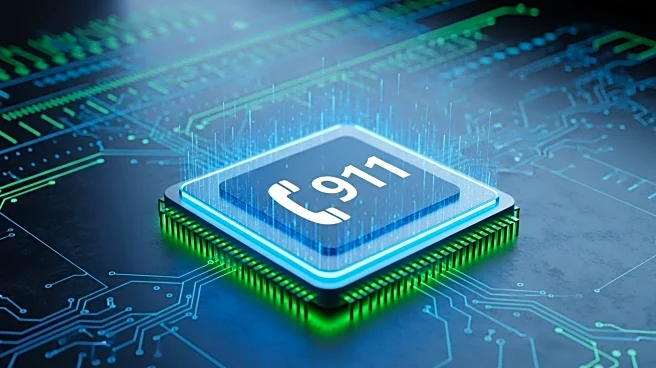What's Happening?
Axon, a company known for its non-lethal weapons and body cameras, has announced a definitive agreement to acquire Prepared, a firm specializing in AI-driven emergency call center technology. Prepared, established in 2019, integrates artificial intelligence to improve the efficiency of emergency communications by combining audio, text, video, and GPS data. The acquisition aims to enhance the speed and clarity of responses for police, fire, and medical personnel. Prepared currently serves over 1,000 agencies across 49 states and has raised more than $130 million, highlighting the growing interest in public safety technology. The financial terms of the deal were not disclosed, but earlier reports suggest it could be valued at least $800 million. Axon, which reported a 33% increase in revenue to $669 million in the second quarter, expects the transaction to close in the early part of the fourth quarter.
Why It's Important?
The acquisition of Prepared by Axon underscores the increasing role of artificial intelligence in public safety and emergency response. By integrating AI into emergency call centers, the technology can potentially reduce response times and improve the accuracy of information relayed to first responders. This development could lead to significant advancements in how emergencies are managed, potentially saving lives and resources. The deal also reflects a broader trend of investment in AI technologies within the public safety sector, as companies and investors recognize the potential for AI to transform traditional emergency response systems. For Axon, this acquisition could strengthen its market position and expand its product offerings, benefiting both the company and the agencies it serves.
What's Next?
As the transaction is expected to close in the early part of the fourth quarter, stakeholders will be watching how Axon integrates Prepared's technology into its existing suite of products. The success of this integration could set a new standard for emergency response systems, influencing other companies in the sector to adopt similar technologies. Additionally, regulatory bodies and public safety agencies may need to adapt to the changes brought about by AI-driven solutions, potentially leading to new policies and standards in emergency management.











